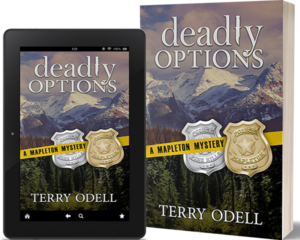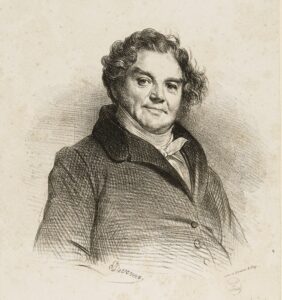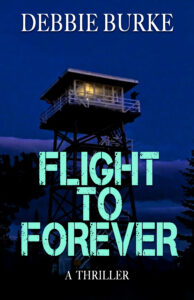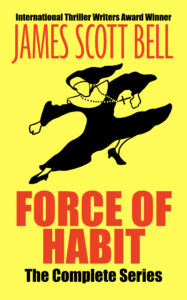“Put down everything that comes into your head, and then you’re a writer. But an author is one who can judge his own stuff’s worth, without pity, and destroy most of it.” — Colette.
By PJ Parrish
I’m in editing mode this week. After getting the rights back to one of our older series books Thicker Than Water, we’re getting ready to self-publish it on Amazon. It’s been fun going back and reading a work that we wrote nineteen years ago. (yikes…nineteen years?)
It’s also eye opening. Because even though I had always thought this was one of our tightest written books, I’m finding a lot of detritus, lint, and junk wordage. Which led me to start thinking hard about Colette’s advice.
Yeah, put down everything that comes into your head. That’s the hot-flash passion of the first draft. But then, cool down and start the cold-hearted process of killing your darlings. Write with your heart. Edit with your head.
Sue’s post from yesterday offered this tasty morsel from writing instructor Gary Provost:
When writing…remove every sentence until you come to one you cannot do without.
Gary’s advice extends of course, to every word you cannot do without. This is a concept that many novelists struggle with, even us old dogs with twenty or more books under our belts. I see this regularly with most of our First Page Critique submissions. Often, I ask the writers to put more in — to establish a sense of place and time frame, to begin creating a mood, to begin layering in character with well-placed snippets of backstory. But more often, there are many words — let’s call them junk words — that should be sliced out because they contribute nothing.
So…you’ve got that first draft done. You’ve let it bake in the hard drive for at least a week. You’re ready to edit with the head. What should you look to cut?
Filler Words. First, get the easy stuff out of there, words like “really,” “very,” “that,” “suddenly,” and my favorite foible — “then.”
- “Suddenly, a shot whizzed by my head” becomes “A shot whizzed by my head.” Gun shots tend to come at you pretty suddenly. No need to gild the Glock.
- “And then Louis lowered himself into the dark cavern” becomes “Louis lowered himself into the dark cavern.”
- “His dog Stella was very excited to see him as he came in the door” becomes “Stella was excited to see him come in the door.” Or even better: “Stella’s tail whirled like a helicopter rotor when he came in.” Show, don’t tell whenever you can.
Redundancies. We all do this — we just stick these junk words in and move on. It’s almost like we don’t even see the insidious little suckers. Things like: The armed gunman ran down the alley. The gunman didn’t realize he was in close proximity to the cop. But he got back to the parked Fiat and make his getaway in the sleek little foreign import. After ditching the Fiat, he snuck into the estate, stopping at the pool to toss in his Glock. He went inside, mingling among the the invited guests. When the cop spotted the Glock at the bottom of the pool, he knew it was a major breakthrough in the case.”
Adverbs. Yeah, we’re going to beat up on poor old adverbs again. But with good reason. Yes, you can use one once in a blue moon but you rarely need to. The presence of an adverb usually means the absence of something else. Nine times out of ten, if you need an adverb, your verb is puny and you need to work harder.
- “She wept uncontrollably” becomes “She sobbed.”
- “He walked jauntily into the bar as if he owned the place.” This becomes “He sauntered into the bar.” BTW, stuff like “as if he owned the place” is cliche. You didn’t invent it so don’t try to steal it.
- “Stella the dog ran quickly across the lawn to get the ball” becomes “Stella raced to get the ball.”
Watch out for adverbial “said” tags. They are crutches we all use when we’ve written lazy dialogue.
- “You’re crazy to think you can get away with this,” he said angrily becomes “You’re nuts! You can’t get away with this!” he yelled. (Yes, you can use the occasional exclamation point.)
- “I like you,” she said flirtatiously becomes “You’re not too smart. I like that in a man.” (One of Matty’s best lines just before she seduces Ned Racine in Body Heat.) If your dialogue is as sinewy as this, you don’t need said tags.
Be aware that, given our pulp ancestors, we modern crime fiction writers can fall prey to the purple adverbs of yore. “He smiled thinly.” “She frowned grimly.” And yes, this is from The Maltese Falcon, which means Hammett can pull this off but the rest of us can’t anymore: “Sorry,” Spade said, and grinned wolfishly, showing his jaw teeth.”
And if I ever see any of you writing things like “She whispered softly” or “He screamed loudly” I will hunt you down and smash your Acer. She said mercilessly.
Okay, time for an object lesson. Here is the ending of a chapter in the book I am editing. Quick set-up: Louis Kincaid is trying to crack an old case — the murder of a teenager named Kitty Jagger. He has sought out the original detective from the case, Bob Ahnert, who’s been demoted and is exiled to an out-station on the edge of the Everglades. Here is the scene, as we wrote and as it was published in 2003:
“I think you still want to solve this case,” Louis said. “In fact, I think you’re the only one who does.”
“Besides you, you mean,” Ahnert replied.
Louis took a moment to answer. “Yes.”
Ahnert was silent for a long time, looking out over the desolate landscape.
“It’s over for me,” he said finally. “She’s yours now.”
Louis was surprised to hear a hint of relief in Ahnert’s voice. He wondered what the hell had happened to this man twenty years ago. He suspected that Ahnert had been so obsessed with finding Kitty’s killer that it had destroyed his career and the rest of his life. He suddenly could hear Sheriff Mobley talking to him as he leaned over the bar at O’Sullivan’s.
He stole an item that belonged to the victim. A gold necklace. Some kind of heart-shaped locket. Guess Ahnert needed the money.
But Louis knew that Ahnert had not needed the money a cheap locket would have brought, and he also suspected now that he had been wrong about Ahnert being obsessed with finding Kitty’s killer. Ahnert was obsessed with Kitty herself.
“Why did you stop investigating?” Louis asked.
“I was told to to stop,” Ahnert said.
Louis shook his head. “I don’t believe that.”
Ahnert finally looked back at Louis. “I was hung up on a dead girl,” he said, then looked away. “That’s really sick, isn’t it.”
Louis ran a hand over the back of his neck and looked up at the sun. But it wasn’t the sun that was making him sweat. It was his own growing suspicion that he, too, was hung up on Kitty Jagger.
“I’m just trying to give her some justice,” Louis said quietly.
Ahnert tossed his cigar into the sand and ground it out with his boot. Then he picked a piece of tobacco off his lip and flicked it away.
“Here’s some advice,” he said. “Forget justice. Just give her some peace.”
Now here’s my editing. I took out every filler word, every dumb hiccup-word, every extraneous emotion-word that I could.
“I think you still want to solve this case,” Louis said. “I think you’re the only one who does.”
“Besides you, you mean,”
Ahnert replied.
Louis took a moment to answer.“Yes.”Ahnert was silent
for a long time, looking out over the desolate landscape.“It’s over for me,” he said
finally. “She’s yours now.”
Louis was surprised to hear aThere was a hint of relief in Ahnert’s voice.He wonderedWhat the hell had happened to this man twenty years ago?He suspected that AhnertHad been so been so obsessed with finding Kitty’s killer that it had destroyed his career and the rest of his life?He suddenly could hear Sheriff Mobley talking to him as he leaned over the bar at O’Sullivans.Mobley’s words came back to him.He stole an item that belonged to the victim.
A gold necklace.Some kind of heart-shaped locket. Guess Ahnert needed the money.But
Louis knew thatAhnert had not needed the money a cheap locket would have brought.and he also suspected now that he had been wrong aboutAnd Ahnert wasn’tbeingobsessed with finding Kitty’s killer.Ahnert was obsessed with Kitty herself.It was Kitty Ahnert wasHe was obsessed with her.“Why did you stop investigating?” Louis asked.
“I was told to
stop,”Ahnert said.
Louis shook his head.“I don’t believe that.”
Ahnert finally looked back at Louis.“I was hung up on a dead girl,”he said, then looked away.He looked away. “That’s really“It’s sick, isn’t it.”Louis ran a hand over the back of his neck
and looked up at the sun.But it wasn’t the sun that was making him sweat.It was his own growing suspicion that he, too, was hung up on Kitty Jagger.“I’m just trying to give her some justice,” Louis said
quietly.Ahnert tossed his cigar into the sand and ground it out with his boot.
ThenHe picked a piece of tobacco off his lip and flicked it away.
“Here’s some advice,” he said.“Forget justice. Just give her some peace.”
Here’s how it looks, edited. Notice how much cleaner it looks on the page and how much more active it feels in terms of pacing:
“I think you still want to solve this case,” Louis said. “I think you’re the only one who does.”
“Besides you, you mean.”
“Yes.”
Ahnert was silent, looking out over the desolate landscape. “It’s over for me,” he said. “She’s yours now.”
There was a hint of relief in Ahnert’s voice. What the hell had happened to this man twenty years ago? Had he been so been so obsessed with finding Kitty’s killer that it had destroyed his career and the rest of his life? Mobley’s words came back to him.
He stole an item that belonged to the victim. Some kind of heart-shaped locket. Guess Ahnert needed the money.
Ahnert had not needed the money a cheap locket would have brought. And he wasn’t obsessed with finding Kitty’s killer. He was obsessed with her.
“Why did you stop investigating?” Louis asked.
“I was told to.”
“I don’t believe that.”
“I was hung up on a dead girl,” He looked away. “It’s sick, isn’t it.”
Louis ran a hand over the back of his neck. It wasn’t the sun that was making him sweat. “I’m just trying to give her some justice,” he said.
Ahnert tossed his cigar into the sand and ground it out with his boot. He picked a piece of tobacco off his lip and flicked it away.
“Forget justice,” he said. “Just give her some peace.”
The original version is 347 words. The edited version is 250. Did we lose anything important? Nope. In fact, the edit trusts the reader to “get” what Louis is thinking and feeling. Specifically the fact that Louis himself is becoming obsessed with the dead girl. Which is showing instead of telling. Which is leaving something unsaid and trusting the reader to get it.
That’s it for today. I’m back to editing. Please weigh in and tell us what your worst junk-word habits are. Even old crime dogs need to learn new tricks.
P.S. Below is the original cover for Thicker Than Water and our redesign mock-up. 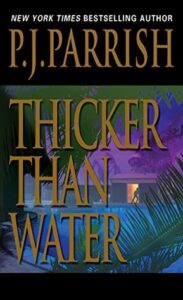


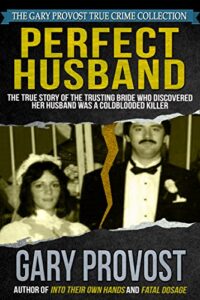 The above series of “buts” Provost used in a book proposal for a true crime book entitled Rich Blood. The proposal started a bidding war between publishers.
The above series of “buts” Provost used in a book proposal for a true crime book entitled Rich Blood. The proposal started a bidding war between publishers.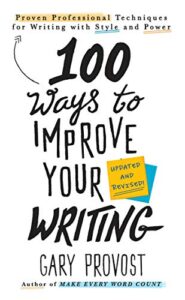





 “If you don’t know about Nigerian scams, then you’ve probably never used the internet. Seems like every couple weeks these West-African crooks drop me an email thinking I’m dumb enough to bite. Some people must, or the cons wouldn’t keep trying. So it was no surprise when I checked my inbox Tuesday morning and found another Nigerian grab at my wallet.
“If you don’t know about Nigerian scams, then you’ve probably never used the internet. Seems like every couple weeks these West-African crooks drop me an email thinking I’m dumb enough to bite. Some people must, or the cons wouldn’t keep trying. So it was no surprise when I checked my inbox Tuesday morning and found another Nigerian grab at my wallet.

 With an understanding of your agreement to confidentiality, my project involves a revised form of hyper-velocity, multi-directional transportation. The concept for analogous movement between distant portals, both historic and forthcoming, is nothing new. Space-time dilation based on the Einstein-Rosen bridge theory has been conceptualized for decades. Practical application of Faster-Than-Light (FTL) amplification was bottlenecked due to tachyon condensation which restricted Portal Entrance and Exit (PEE), but there’s now a clear and unique opportunity for a massive breakthrough.
With an understanding of your agreement to confidentiality, my project involves a revised form of hyper-velocity, multi-directional transportation. The concept for analogous movement between distant portals, both historic and forthcoming, is nothing new. Space-time dilation based on the Einstein-Rosen bridge theory has been conceptualized for decades. Practical application of Faster-Than-Light (FTL) amplification was bottlenecked due to tachyon condensation which restricted Portal Entrance and Exit (PEE), but there’s now a clear and unique opportunity for a massive breakthrough. I’m sure you’re familiar with the 1985 works of Professor Emeritus Dr. Emmett Brown and his DeLorean model. Unfortunately, it’s been three decades, going on four, since Doc vanished in a timely experiment. Although I patiently await his return, progress must move forward. With this, I’ve acquired Doc’s patent rights to the Flux Capacitor (FC) – the propulsion device central to warping the Space-Time Continuum (STC). Early technology restricted FC Input/Output (I/O) to 1.21 jigawatts, however… I’ve found a method of quadrupling I/O to 4.84 jigawatts, theoretically making the trip four times faster.
I’m sure you’re familiar with the 1985 works of Professor Emeritus Dr. Emmett Brown and his DeLorean model. Unfortunately, it’s been three decades, going on four, since Doc vanished in a timely experiment. Although I patiently await his return, progress must move forward. With this, I’ve acquired Doc’s patent rights to the Flux Capacitor (FC) – the propulsion device central to warping the Space-Time Continuum (STC). Early technology restricted FC Input/Output (I/O) to 1.21 jigawatts, however… I’ve found a method of quadrupling I/O to 4.84 jigawatts, theoretically making the trip four times faster. Compounding the situation is the original 1.21 jigawatt FC only required an 88 mph ERV. With a four-times capacity 4.84 jigawatt FC, it’s boosted the ERV to 352 mph. I realized… Great Scott! That’s a lot of ground speed. Fortunately, I’ve identified the new Aston Martin AM RB-001 Valkyrie as the perfect design. Now—here’s where you come in.
Compounding the situation is the original 1.21 jigawatt FC only required an 88 mph ERV. With a four-times capacity 4.84 jigawatt FC, it’s boosted the ERV to 352 mph. I realized… Great Scott! That’s a lot of ground speed. Fortunately, I’ve identified the new Aston Martin AM RB-001 Valkyrie as the perfect design. Now—here’s where you come in. Appreciatively, I’m accepting your group’s investment of $3.12 million USD. This covers the Valkyrie purchase, shipping, and handling. Please make an immediate monetary transfer via Western Union for deposit into my account #6105-883-464-0901 at Nanaimo, British Columbia, Canada. In lieu of cash, your direct purchase of the AM RB-001 PEE Valkyrie can be delivered to my Vancouver Island R&D facility.
Appreciatively, I’m accepting your group’s investment of $3.12 million USD. This covers the Valkyrie purchase, shipping, and handling. Please make an immediate monetary transfer via Western Union for deposit into my account #6105-883-464-0901 at Nanaimo, British Columbia, Canada. In lieu of cash, your direct purchase of the AM RB-001 PEE Valkyrie can be delivered to my Vancouver Island R&D facility.
